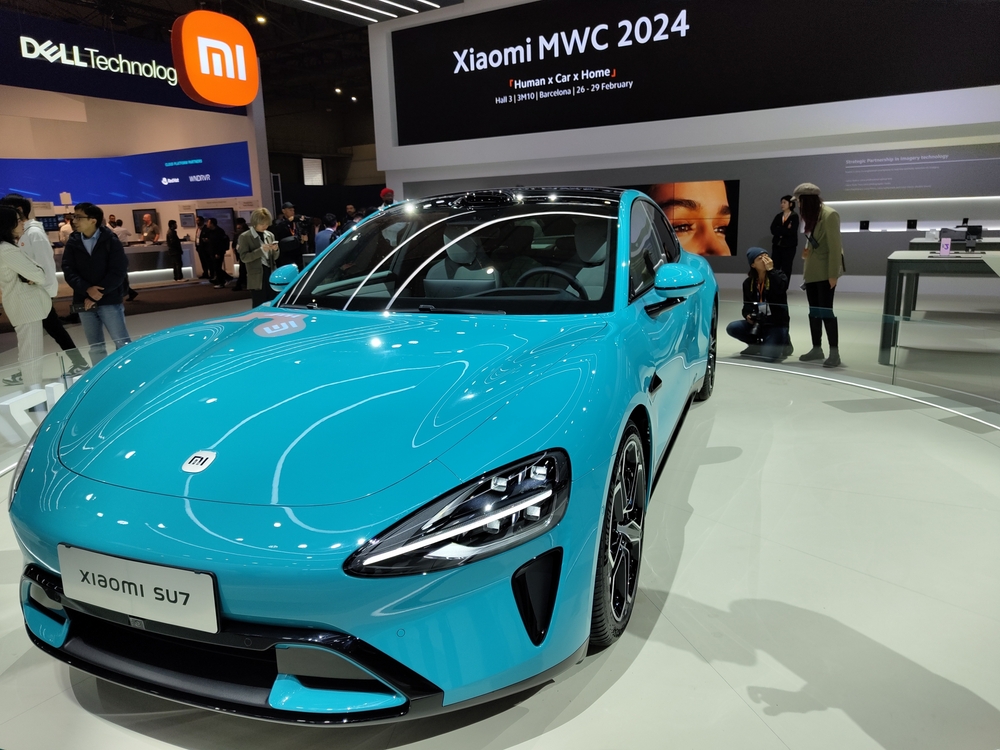Leading Chinese smartphone maker Xiaomi has made a spectacular entry into the automotive sector with its first vehicle, marking a key moment in the company's diversification strategy. The launch of the SU7, a sporty electric sedan, highlights Xiaomi's EV ambitions and also signals a potential change in the dynamics of the global EV market. With more than 100,000 orders, the entry into the EV space is off to a promising start, indicating a bright future for the tech giant and its stakeholders.
Strong market debut
Wednesday's announcement by Xiaomi to start deliveries of the SU7 garnered considerable attention, thanks in part to the huge number of orders received. The company announced that it has already produced a batch of 5,000 "Founder's Edition" units, equipped with additional accessories for early buyers, indicating strong demand for the new model. Such enthusiasm for the SU7 has been reflected in the stock's performance, which has risen as much as 16%[1] following the launch,* despite a projected loss of nearly $10,000 per car this year.
Xiaomi vs. the Giants
Xiaomi's market capitalization of $55 billion has briefly surpassed that of traditional automotive giants such as General Motors and Ford, indicating significant investor confidence in the electric vehicle company.* The SU7's entry into the crowded Chinese EV market with a competitively priced sub-$30,000 base model puts Xiaomi in a strong contender against manufacturers such as Tesla, especially in the world's largest automotive market.
Strategic advantages and challenges
Xiaomi's transition to electric vehicles is not without its challenges. The company is entering a market characterized by fierce competition and slowing demand. However, its considerable financial resources and its prowess in smart technologies give it a distinct advantage, especially in a market where consumers increasingly value smart dashboards. Leveraging its expertise in smartphones, it wants to differentiate the SU7 through advanced technology features and potentially set a new standard for what consumers can expect from an electric car.
In addition, the launch of the SU7 fulfils CEO Lei Jun's ambition, announced in 2021, to venture into the EV market, dedicating $10 billion to what he described as the "last big business project" of his life.
Implications for investors
For investors, Xiaomi's entry into the electric vehicle market represents a unique opportunity to diversify their portfolios with a company that combines technological innovation with automotive development. Although the projected loss for the year on a per-vehicle basis suggests initial profitability issues, the long-term potential of the electric vehicle business could be significant given the potential global shift towards electric vehicles and a strong brand and technology base.
* Past performance is no guarantee of future results.
[1] Xiaomi's stock performance over the past five years: https://tradingeconomics.com/xmgp:hk


